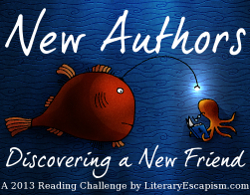
From "Welfare Mothers" (page 7): Little Bo Mercy in heels and hose, just under the water she usually goes. She moves grams and ounces, prays for war. She's not the droid you're looking for.
From "Appetite for Destruction" (page 10): I want to watch you bleed. My tongue doesn't know its right from wrong. I'm uninsured. I ride the bus, a loaded gun inside my purse. My mouth's a roadside bomb.
However, not all of these poems are perfect, and read more like performance pieces than poems meant for the page. In many ways, Robbins’ unconventional style loses something in the translation to the page and would probably benefit from an accompanying audio version. Although there is a pervasive anger in the collection, the anger is not about violence so much as it is about frustration. Robbins touches upon hot topics in the news, including the killer whales at Sea World, and the more mundane stories that don’t make the news, like the struggling mothers hit by terrorism or welfare.
Robbins not only showcases his knowledge of music, television, and movies, but also poets and poetry, philosophy, and more. In many ways, these references and — dare I call them, odes — can be too esoteric. A cautionary note at best, but readers will enjoy the rhythm, the playfulness, the frustration, and the pain Robbins reveals — a pain and frustration that many of us will turn a blind eye to on a daily basis as we go about work and caring for our families. It begs the question as to when society became so self-absorbed that societal hardships and decline are ignored even when it is on the doorstep.
Alien vs. Predator by Michael Robbins is a hip, rhythmic collection that will challenge readers preconceptions of the world around them, pop culture, and even poetry. Although some poems are more effective than others, Robbins has crafted a collection that screams: “Watch Out!”

Michael Robbins is the author of Alien vs. Predator (Penguin, 2012). His poems have appeared in the New Yorker, Poetry, Harper’s, Boston Review, and elsewhere. He reviews books regularly for the London Review of Books and several other publications, and music for The Daily and the Village Voice. He received his PhD in English from the University of Chicago.
I received this book from Necromancy Never Pays‘ Trivial Pursuit for Bloggers.
Check out these other reviews:
The New York Times
Necromancy Never Pays
Book Chatter







